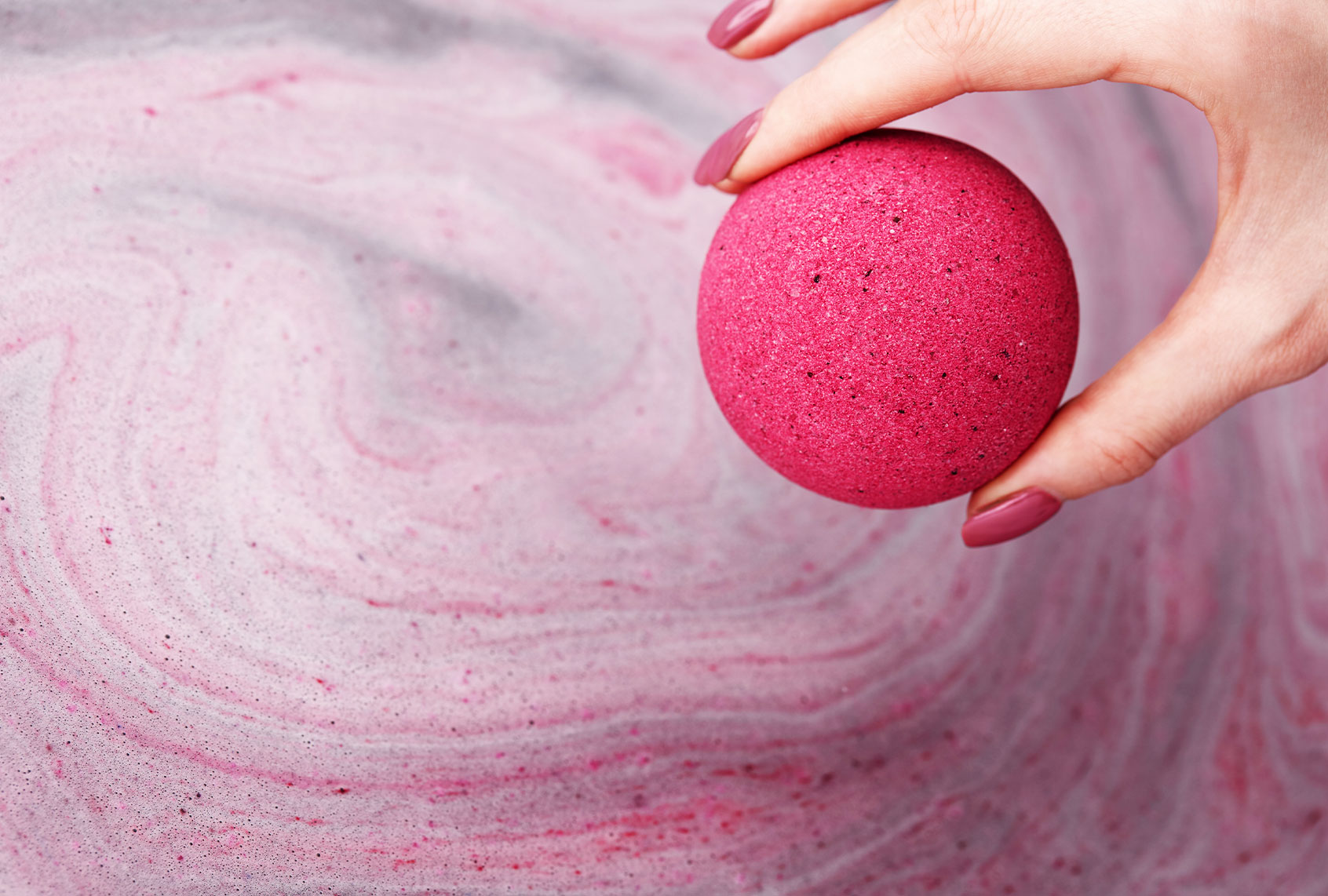There are only so many Valentine’s Day gifts you can give a partner during a pandemic. I doubt I was alone in my struggle to find something thoughtful, COVID-safe, under $50— and if I’m being honest, a gift I’d enjoy too.
That was how I landed on the idea of giving my partner a nice box of bath bombs. Not the mass-produced ones that try to seduce you with their colors when you’re in the check-out line at Walgreens, but something more bespoke. That meant turning to Etsy, where I knew I could find something handmade by a mom-and-pop operation — ideally, more eccentric and interesting than what one might find at Lush or Bath and Body Works.
The bath bomb set I settled on advertised themselves as “handmade, organic,” and “healing” — plus, they were infused with “essential oils.” “FEEL your skin being nourished like never before; SEE the multicolor swirls of a long lasting beautiful fizz; HEAR your stress melting with the bubbles” the description promised. And, a bonus: these bath bombs had “no parabens, sulfates, or chemicals,” and were “only pure natural goodness.” It sounded soothing.
On Valentine’s Day, my fiancé unwrapped his gift, thanked me, and said, “you can use these, too.” My not-so-sinister plan was working.
When it comes to having fun in a pandemic, I take what I can get; and, well, let’s just say I was very excited for this bath. I ran the hot water until it was halfway full and dropped in the purple bomb. As it dissolved, it resembled a ball of yarn unfurling slowly, turning the water a shade of cobalt blue. My bathroom smelled like a field of lavender; I was in heaven. I lowered my body into the hot bath and felt instantly relaxed. I read for about 20 minutes and then flipped the switch to drain the water. After my bath, I felt so relaxed. Maybe the stress actually did melt with the bubbles. I even told my partner that it was the best bath I ever had — until it wasn’t.
* * *
A few hours I felt the inexplicable urge to pee, yet I hadn’t been consuming liquids. The sensation was familiar; I immediately suspected that I had a urinary tract infection.
How did this happen? I wondered. Could it be that the best bath of my life is to blame?
I googled “Can bath bombs cause UTIs?” To my horror, a slew of articles detailing why bath bombs are bad for women’s health popped up.
In hindsight, it should have been obvious why and how bath bombs aren’t good for women. Foreign objects — like bath salts or color dye — can lead to the beginnings of a urinary tract infection.
Dr. Megan Evans, MD, Obstetrician and Gynecologist at Tufts Medical Center, said the ingredients that are often used in bath bombs can cause “irritation and inflammation to the vulva.”
“Irritation to the epithelium [skin on the outside of the body] makes it easier for bacteria to ascend up the urinary tract through the urethra and into the bladder, causing a urinary tract infection,” Evans said.
So are all bath bombs equally bad? Is there a specific ingredient to look out for? Different bath bombs have different ingredients, but most include a weak acid and a bicarbonate base to create the fizzing effect.
“It’s difficult to know, as bath bombs are likely made with a variety of ingredients,” Evans said. “For some people, artificial scents and colors could cause irritation to the vulva; for others it may be a specific ingredient; and not all people will have a reaction.”
Bath bombs are generally marketed towards women; and ironically, the feminine design and scents may be what makes bath bombs apt to cause UTIs. The visual aesthetic, achieved through dyes, are a large part of the appeal. Indeed, bath bombs are frequently Instagrammed by wellness influencers for their effervescent colors and effects.
Interestingly, the history of the bath bomb predates social media: Lush Cosmetics claims that their co-founded invented the bath bomb in 1989. Still, the visual culture of social media has inarguably helped popularize them. Hence, since 2014, creating homemade bath bombs has become somewhat of a trend, with how-to guides published in an array of publications from Scientific American to MindBodyGreen.
Evans agreed this is certainly part of a larger trend of products being marketed to women that aren’t actually good nor “necessary” for their hygiene.
“Think ‘vaginal cleaning products’ or scented menstrual products,'” Evans said. “Many people enjoy baths, and this appears to add a fun element to the experience; however, there may be unintended consequences like urinary tract infections or vaginal infections.”
Evans said in general, she would recommend that women avoid heavily scented and artificially colored products.
“If you want to add something to your bath, stick with things that you know haven’t bothered you in the past,” she said. “If you want to try a bath bomb, check out the ingredients and proceed with caution; you might be surprised how many unfamiliar ingredients are in there.”
* * *
The next day, I was able to get on antibiotics and AZO pills to relieve the discomfort. I was fine 10 days later. But I am forever wary of bath bombs, and I can’t shake the feeling that this should be common knowledge. To every woman considering a bath bomb, I leave you with this: proceed with caution and know your risks. A bath bomb might be a ticking UTI time bomb in disguise.

